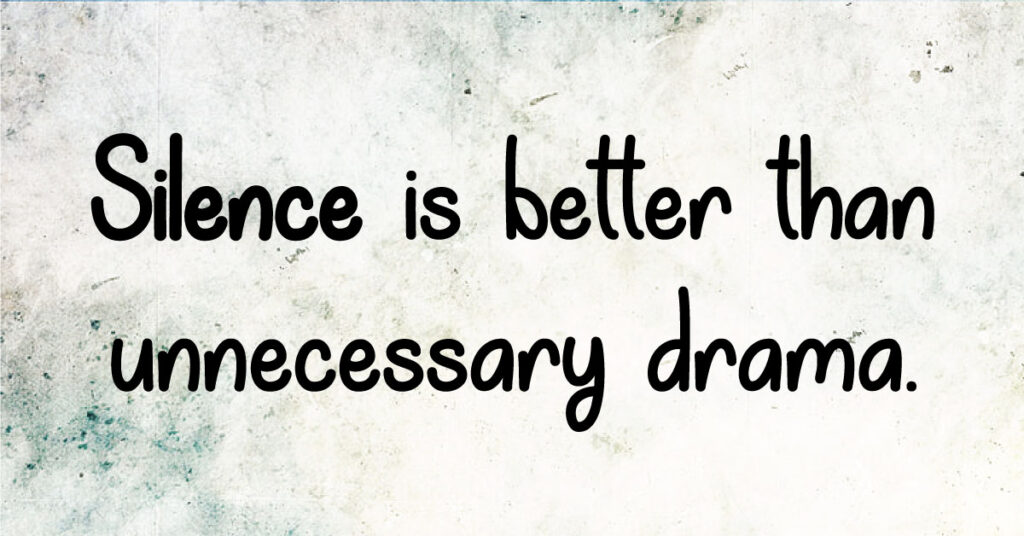In the bustling labyrinth of modern life, finding genuine happiness can often feel like navigating through an elusive maze. We are constantly bombarded with opinions about how we should live our lives, creating relentless pressure to meet external expectations. This societal conditioning nudges us to conform, to emulate others, and in the process, often sows seeds of discontent rather than joy.
Why do we find ourselves striving to prove our worth to family, partners, colleagues, superiors, and even strangers in our day-to-day existence? The truth is, you don’t need validation from others to define your joy. Your happiness should never be tethered to external perceptions. Embrace this understanding and discover that the path to true happiness lies within, undeterred by the noise of the world around you.
Eight Reasons Why You Don’t Need to Prove Yourself
Self-Validation is Enough
Your self-worth is a measure of how you value and perceive yourself, and it should be internally derived, not based on the opinions or approval of others. This means recognizing your own value and strengths, independent of external validation. When you learn to validate yourself, you acknowledge your achievements and worth, which leads to a healthier self-image. As a result, you become less reliant on external affirmation, allowing for greater self-confidence and personal growth.
Freedom from Expectations
Constantly striving to meet other people’s expectations can lead to feelings of exhaustion and dissatisfaction, due to the unending pressure to conform to someone else’s ideals. This can often result in neglecting your own desires and needs. Living for yourself, on the other hand, enables you to establish your own goals and standards, tailored to what truly matters to you. This not only fosters personal growth and self-fulfillment but also promotes a healthier, more balanced lifestyle.
Increases Self-Esteem
When you cease the constant struggle to prove your worth to others, you inherently start building your self-esteem. This shift in focus enables you to appreciate your own abilities and accomplishments, rather than seeking validation from external sources. As you grow more confident in your own capabilities and judgments, your confidence naturally elevates. Over time, this self-assuredness can lead to a more positive self-image and greater resilience in facing life’s challenges.
Promotes Authenticity
Proving yourself to others often implies adhering to their expectations and standards, which can sometimes force you into a mold that doesn’t truly represent who you are. This constant effort to fit in can stifle your individuality and authenticity. However, when you break this cycle and stop trying to prove your worth to others, you create space for your true self to emerge. This allows your unique qualities, talents, and perspectives to shine through, fostering a stronger sense of self-identity and personal fulfillment.
Reduces Stress and Anxiety
The constant pressure to prove yourself to others can create a significant amount of stress and anxiety, as it often involves striving for perfection or fear of judgment. This relentless pursuit can take a toll on your mental health, leading to burnout and emotional exhaustion. By letting go of this need to constantly validate your worth to others, you can greatly alleviate these pressures. This not only contributes to improved mental health but also promotes a more balanced, self-focused approach to personal growth and achievement.
Fosters Self-Improvement
Rather than expending energy on trying to prove your worth to others, which can often be an exhausting and unfulfilling endeavor, you can redirect that effort towards personal growth and self-improvement. This shift in focus allows you to concentrate on nurturing your skills, knowledge, and personal attributes. It encourages self-reflection and self-awareness, key aspects of personal development. Ultimately, this approach not only enhances your capabilities but also fosters a sense of self-worth that is independent of external validation.
Encourages Healthy Relationships
Relationships that revolve around the constant need to prove oneself can be emotionally draining and unhealthy, as they often lack mutual respect and acceptance. They can perpetuate a cycle of validation-seeking behavior, which can hinder genuine connection and understanding. However, when you stop trying to prove yourself and start embracing your true self, you begin to attract individuals who appreciate and accept you for who you are. These relationships are typically healthier and more fulfilling, as they are rooted in authenticity and mutual respect.
Cultivates Inner Peace
Letting go of the need to prove yourself to others can be a liberating experience that paves the way for inner peace. This shift allows you to accept your strengths and weaknesses, leading to a greater sense of self-acceptance. As you learn to embrace your flaws and appreciate your unique qualities, you cultivate a more harmonious relationship with yourself. Consequently, this self-acceptance leads to a more peaceful and contented life, free from the stress of constant validation-seeking.
Final Thought
You don’t need to prove yourself to anyone else because your worth is not determined by others’ perceptions. Seeking constant approval can lead to a cycle of self-doubt and dissatisfaction. Embracing your authentic self, with all your strengths and weaknesses, is the key to genuine happiness and self-fulfillment. Remember, your value comes from within and it’s your personal growth, self-acceptance, and contentment that truly matter in the end.








